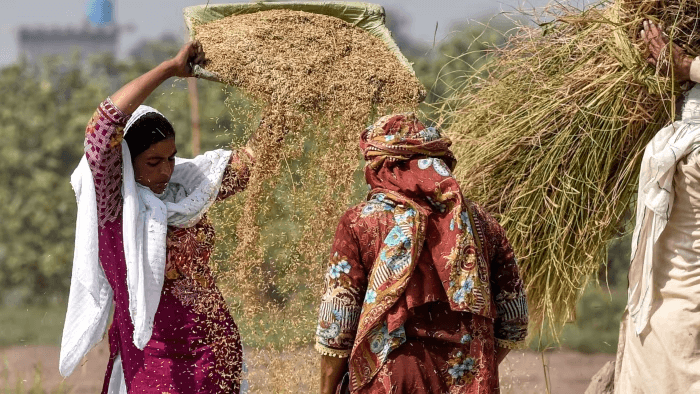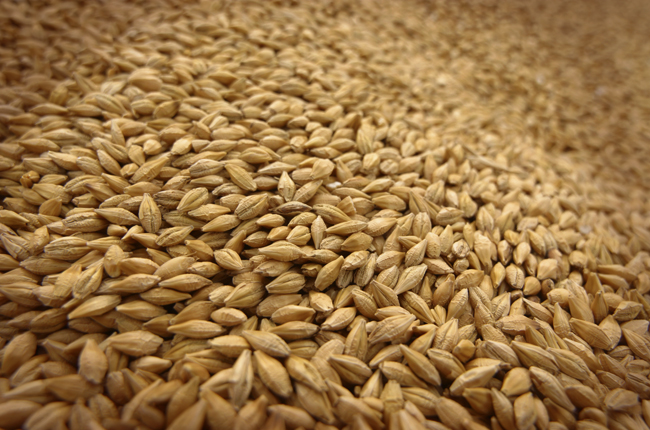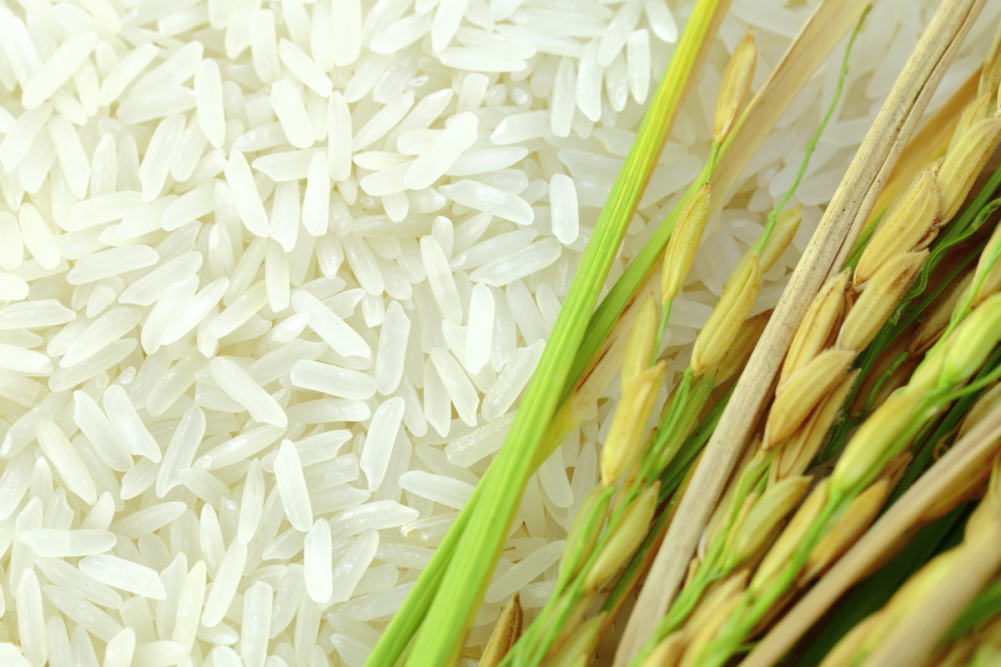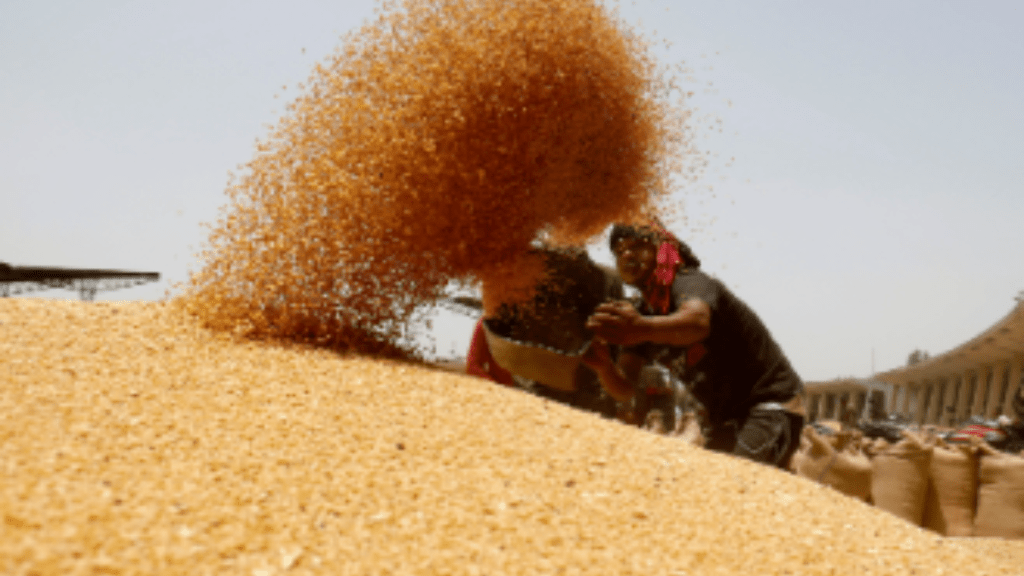Tags
Pakistan rice exports hit record following Indian sales ban
Windfall is a boon to country hit by double-digit inflation and anaemic economic growth.

India continues to be the biggest supplier of rice globally, but Pakistan has increased its share of the market from 7% to about 10% © Arif Ali/AFP/Getty Images
Pakistan is selling record amounts of rice to global markets as it profits from trade restrictions introduced last year by India, the world’s biggest exporter.
Rice exports from Pakistan, the fourth-largest exporter, surged to almost 5.6mn tonnes in the 11 months to the end of May, up nearly 60 per cent on the same period a year earlier, according to official statistics.
The value of Pakistan’s rice exports rose to $3.6bn over the period, up from $2bn in July to May 2022-23. Its previous record was 4.8mn metric tonnes of rice exports, valued at about $2.5bn in 2021-22. The boom follows India’s decision to impose export restrictions on certain types of rice last year, in an effort to curb rising domestic prices ahead of parliamentary elections after a volatile monsoon disrupted production and spurred fears of a supply shortage. “With India imposing export restrictions . . . Pakistan emerged as a low-cost alternative,” said Elvis John, an associate editor for agricultural markets for S&P Global Commodity Insights. “Many price-sensitive destinations in Africa turned to Pakistan to fulfil demand,” he said, pointing to markets in south-east Asia and the Americas.

Pakistan produced almost 10mn tonnes of rice in the nine months to the end of March, compared with 7.3mn tonnes in the same period a year earlier, the Pakistani government wrote in its annual economic survey released on June 11. The 2022-23 crop was particularly low because of the devastating floods in the summer of 2022, said Faizan Ghori, director of Matco Foods, Pakistan’s largest basmati rice exporter. But even compared with the year before the floods, the current export growth “comes to about 20 per cent, which is still very impressive”, he said, attributing the boost to India’s export ban. For Pakistan, the windfall revenues and rebound in production have provided a much-needed source of foreign exchange for the country of 240mn, which is struggling with double-digit inflation, anaemic economic growth and soaring public debt. Global rice prices surged to decade highs after New Delhi implemented export restrictions in July. Poorer countries in Africa, which typically buy large amounts of rice from India, were particularly affected. “Rice prices are still high and I would expect will remain high until India removes the ban,” said Joseph Glauber, senior research fellow at food security think-tank International Food Policy Research Institute.

Despite the export ban, India continues to be the biggest supplier of rice globally, followed by Thailand, Vietnam, and Pakistan, said John, but Pakistan has increased its share in the market to about 10 per cent, up from 7 per cent in the previous year. Hammad Attique, director of sales and marketing at Lahore-based Latif Rice Mills, said his company had seen a surge in demand and orders from the Middle East, Africa and south-east Asia, regions where Indian-origin rice typically dominates. Those buyers “had to buy from Pakistan even at much higher rates than India,” he added, referring to the price spike that accompanied India’s restriction on exports. “[Exports] could have been even higher had shipping routes not been disrupted in the current Red Sea crisis,” said Ghori, referring to attacks on commercial ships since last November.
The attacks led to a decline in demand for Pakistani rice from buyers in the Middle East, Europe and the US, according to the government’s economic survey. Pakistan is expected to produce another bumper harvest this year, analysts said, but farmers in the country could face falling prices for their crop if India ends or substantially softens its export policy. “The market has expected India to relax their restrictions following the elections, so we’ll see,” said Glauber, referring the six-week poll, in which Prime Minister Narendra Modi returned to power.
https://www.ft.com/content/88281d0b-4d68-4f96-b499-2d006732b7c7Published Date: June 16, 2024






